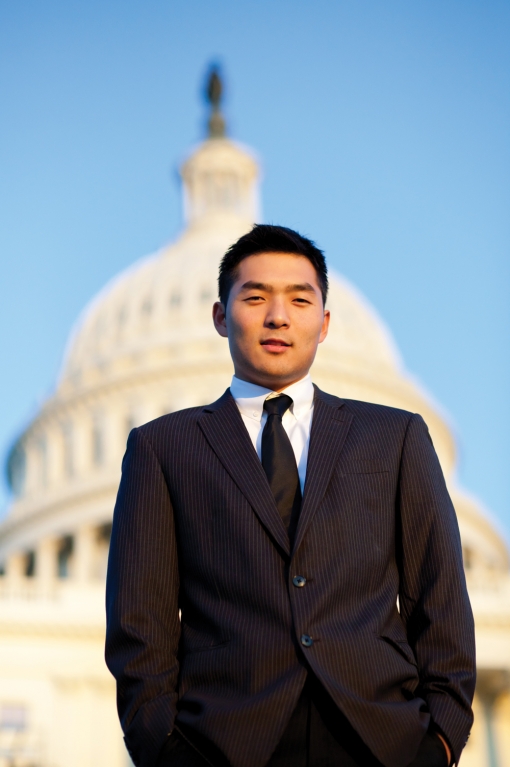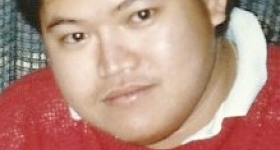Whether to fundraise, bring awareness to the rescue of North Korean refugees or help build the first secondary school in Lenana, Kenya, Eddie Lee knows how to make viral videos that captivate the public.
The 25-year-old Kansas native is the co-founder of a nonprofit video production group called The Jubilee Project, which produces videos to raise awareness and funds for nonprofit organizations and worthwhile causes. Sponsors pledge to donate a set amount each time a video is viewed; the average pledge is about 5 cents per view but can go as high as 58 cents per view (the pledge for a video benefiting a microfinance organization for women survivors of the Liberian civil war).
Lee formed the nonprofit with his brother Jason and friend Eric Lu in the aftermath of the Haiti earthquake, out of a wish to do anything they could to contribute to relief efforts. In the past year, they have produced over 40 short fundraiser videos that have been viewed over 1 million times, garnering over $28,000 for various global nonprofit organizations.
Lee graduated in 2009 from Harvard with a Bachelor of Arts degree in government and economics. As for his day job, he has recently been promoted from his position as social media producer for the US Department of Education. Beginning in October, he’ll be working at the Office of Public Engagement on the White House Initiative on Asian Americans and Pacific Islanders.
He shares with Hyphen how his mom got him into social media, what it is like to work with President Obama and what he won’t do for his videos.
How did you get into making videos?
I didn’t know how to make videos until my junior year of college in
2007 while interning for the Barack Obama presidential campaign.
After three months of knocking on people’s doors, I one day decided
to capture the experience on a handheld video. I posted it
online and the staff loved it. My parents, both professors, wanted
me to go back to school, but when Barack called me himself asking
me to stay on the campaign to continue making videos, I couldn’t
turn down this great opportunity to be a part of American history.
I decided to take a leave of absence from school. The campaign
gave me a camera and I quickly learned every trick in the book and
fell in love with the power of video.
You were the new media director, documenting President
Obama's campaign via online videos on a daily basis. What was
it like to travel with him?
Filming him as he went from event
to event gave me a unique perspective
of his campaign. I learned
the potential for one voice to empower
a nation. After traveling with
him for one year, I was inspired to
make leadership in the AAPI community my calling.

The Jubilee Project has helped to raise funds for many causes
ranging from anti-bullying to hepatitis B awareness, a disease
which affects 1 in 10 Asians and Pacific Islanders. How do you
decide which organizations to help?
We first decide what issues we care about and then find an organization
we could work with. In the case of fundraising for the
American Society for Deaf Children, we have family members who
are hard of hearing, and so felt compelled to do something on this
issue. Now as we’ve developed more of an online presence, we’re
receiving more and more requests and have to prioritize each cause
and how much of an impact we can really make within them.
Jubilee Project’s fundraising videos are so eclectic. The fundraiser
for Japan earthquake relief titled Top Chef hilariously
chronicles a cooking date gone wrong, while on a more serious
note, your video against domestic violence showcases men
like Survivor winner Yul Kwon declaring what they find beautiful
about women. How do you come up with the creative concepts
for the videos?
Some people are moved by love stories, others a simple message,
some by music videos. The goal is to reach the broader public. We decide on a case-by-case basis how to most effectively reach our
audience and what would work best.
How did you get your start in social media?
My mom is a computer science professor and inspired my brother
and me to get involved with social media. She was on Xanga, blogging
and posting pictures, and on Twitter before we even were!
She’s even started a Jubilee Project newsletter for her church
friends! She is where we get all that creative energy from.
Who are some Asian American social media stars that you admire?
Wong Fu Productions is our inspiration and without them we
wouldn’t be here today. Clara Chung is so humble and her passion
for her art is very inspiring.
What future projects are in store for The Jubilee Project?
We plan on doing a college tour in the fall, in which we’ll be showing
our videos and empowering and inspiring students to use social
media to go into their communities and help tackle issues that are
important to them.
How can today’s youth use social media to become leaders or
voices of change in their community?
We are at an interesting time in AAPI history where our generation
can tap into new media tools to really make a huge impact on
our communities. Every single day there are over 2 billion views
on YouTube. Social media has the power to make a difference.
People are online and active. If you’re able to tap into that and
inspire even just one percent to take action, then the possibilities
are endless.
You went barefoot in the rain to help raise awareness for the
millions around the world without shoes. Is there anything you
won’t do for your videos?
The Jubilee Project has brought me out of my shell and gotten me
out of my comfort zone, but I will not sing a song! That will take a lot
of soju to make possible!
Angela Pang is a Hyphen contributing writer.









Comments